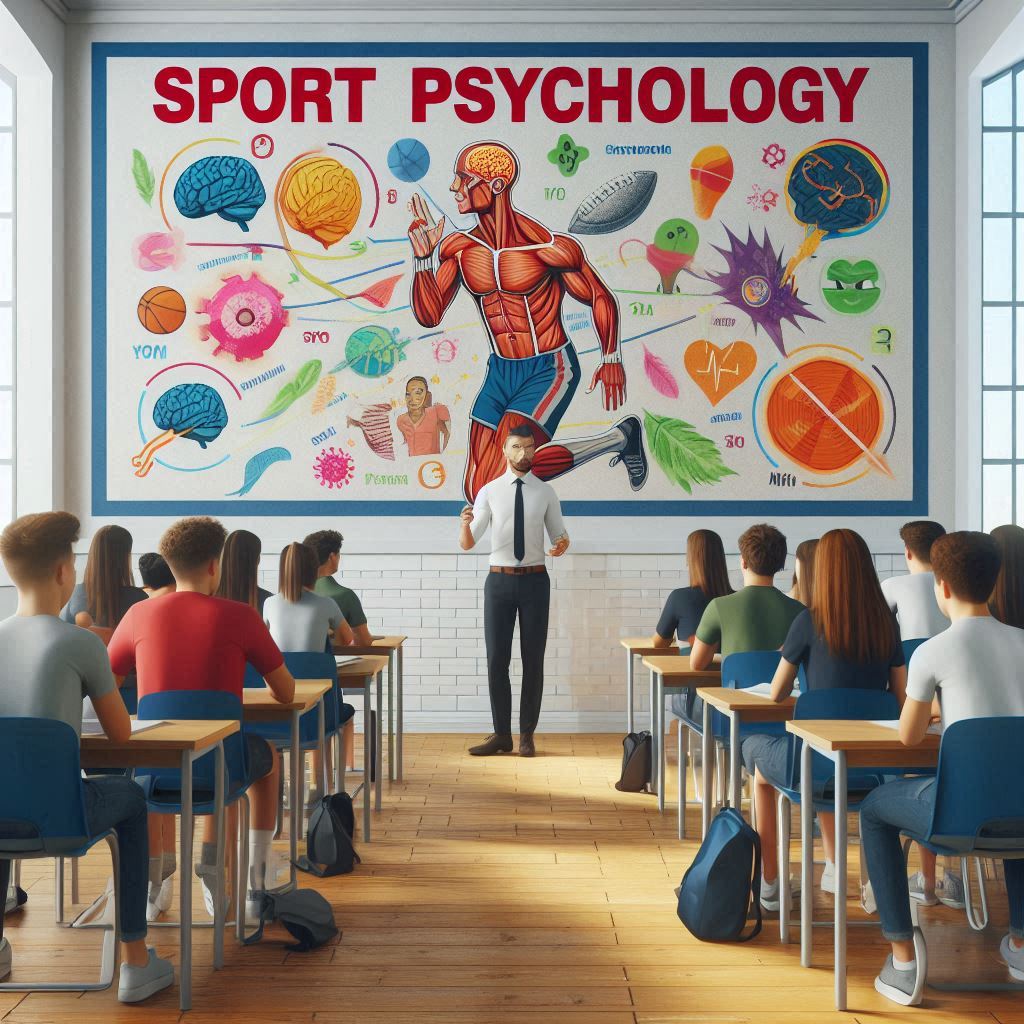Incorporating sport psychology into a high school curriculum is a forward-thinking approach that benefits young athletes both on and off the field. Sport psychology focuses on enhancing mental toughness, improving focus, and developing the skills needed to manage stress in competitive sports environments. For high school students, these lessons help foster not just better athletes, but also stronger individuals who can face challenges in many areas of life. This article outlines why a sport psychology curriculum is essential for high schools and how it can be implemented effectively.
Why Is Sport Psychology Important for High School Athletes?
High school athletes face numerous challenges, from balancing academics with sports to managing performance pressure. The mental aspect of sports is often overlooked, but it is crucial for an athlete’s overall success. Sport psychology teaches students how to focus, stay motivated, and manage anxiety, helping them improve performance under pressure.
Here are a few reasons why sport psychology is vital for young athletes:
- Mental Toughness
Athletes often deal with high-pressure situations, such as playoff games, where mental toughness can be the difference between winning and losing. Sport psychology helps students develop the resilience needed to handle setbacks and maintain focus in the face of adversity.
- Stress and Anxiety Management
Many young athletes struggle with performance anxiety, which can impact their game. Techniques like deep breathing, visualization, and positive self-talk can be taught to help athletes manage stress and reduce anxiety during competitions.
- Goal Setting and Motivation
A sport psychology curriculum can teach students the importance of setting realistic goals and maintaining motivation. Learning how to break goals down into smaller, achievable steps helps students remain focused and committed to long-term success.
- Teamwork and Communication
Sport psychology also emphasizes the importance of effective communication and teamwork, both crucial for team-based sports. Teaching athletes how to resolve conflicts, collaborate with teammates, and communicate effectively leads to a stronger, more unified team.
Key Components of a High School Sport Psychology Curriculum
Creating a sport psychology curriculum for high school students involves addressing the mental, emotional, and social aspects of athletics. Here’s a breakdown of what such a program could include:
- Introduction to Sport Psychology
Start by familiarizing students with the basic concepts of sport psychology. This could include lessons on how the mind affects physical performance and why mental training is just as important as physical training. By understanding the role the brain plays in athletic success, students will be more open to learning the mental techniques that follow.
- Mental Training Techniques
One of the core components of sport psychology is teaching mental skills that can be applied during practice and competition. Techniques such as visualization (picturing successful outcomes), goal setting (both short-term and long-term), and mindfulness (staying present in the moment) are essential skills that can boost performance.
- Coping with Pressure
Students need to learn how to handle high-pressure situations. Through role-playing, simulations, and real-life practice, they can learn strategies to manage the stress and anxiety that come with competitive sports. This can include mindfulness exercises, breathing techniques, and pre-game routines designed to keep them calm and focused.
- Developing Confidence
Confidence plays a huge role in athletic success. A sport psychology curriculum can focus on teaching athletes how to build and maintain confidence, even when facing setbacks or losses. By using positive affirmations, focusing on strengths, and celebrating small wins, athletes can learn to keep their self-esteem intact.
- Team Dynamics and Leadership
Teamwork is a significant part of high school sports, and understanding group dynamics is crucial. Sport psychology can help students improve their communication and leadership skills, fostering a sense of camaraderie and accountability among teammates.
- Recovery and Mental Health
The curriculum should also address the importance of mental recovery and maintaining overall well-being. Just as athletes need physical rest, they also need mental breaks to avoid burnout. Teaching young athletes about mental recovery, relaxation techniques, and the importance of maintaining balance between sports and life will contribute to their long-term health and performance.
How to Implement a Sport Psychology Curriculum in High Schools
To successfully integrate a sport psychology curriculum into high schools, collaboration between coaches, teachers, and sport psychologists is essential. Here are some key steps:
- Professional Development for Coaches
Provide training sessions for coaches to familiarize them with sport psychology techniques. This will ensure that mental training is integrated seamlessly into athletic programs and practices.
- Classroom Lessons
Incorporate sport psychology into physical education or health classes. These lessons could cover topics like stress management, goal setting, and mental imagery. Classroom time gives students a structured environment to learn and discuss these concepts.
- Workshops and Seminars
Invite sport psychologists to give workshops or seminars for students and athletes. These sessions could be interactive, focusing on hands-on techniques like visualization and breathing exercises, and helping athletes apply these lessons to their sports.
- Ongoing Support
Offer ongoing mental health support for athletes, such as one-on-one sessions with a counselor or psychologist. Athletes should have access to resources that can help them deal with stress, anxiety, or other mental health challenges that arise during the sports season.
Conclusion: The Power of Mental Training
A sport psychology curriculum for high school students can have a lasting impact on both their athletic performance and personal development. By teaching young athletes how to manage stress, build mental toughness, and work effectively with teammates, we help them become not only better athletes but also well-rounded individuals. Implementing a well-structured sport psychology program will set students up for success in both sports and life.






